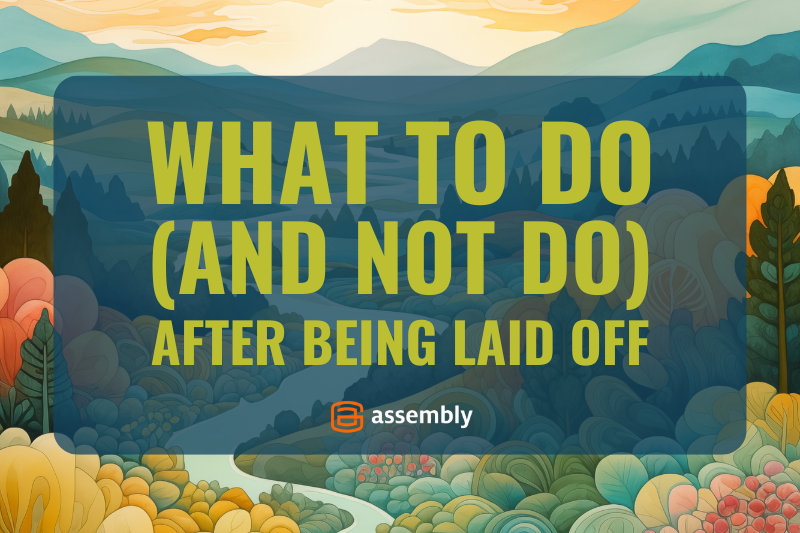When to Take Social Security: 5 Key Considerations
Choosing when to file for Social Security benefits is one of the biggest decisions you’ll make leading up to retirement. The timing can significantly...

In December 2024, Congress passed the “Social Security Fairness Act” which allows some retirees who receive a public pension to collect higher Social Security benefits. This bill repeals the Windfall Elimination Provision and the Government Pension Offset, which will lead to higher Social Security benefits for some public employees.
In this article, we’ll explain:
Retirees who worked in “non-covered” jobs and did not pay into the Social Security system for most (or all) of their careers are typically not eligible to receive Social Security benefits for the years they spent working those jobs. “Non-covered” employees are most commonly state and local government employees, as well as some federal government employees. These workers, including firefighters, law enforcement and public educators, typically receive public pensions instead of Social Security benefits.
But what about employees who worked some years in a “non-covered” position and some years in a “covered” position? For example:
Prior to the Social Security Fairness Act, these workers would pay Social Security taxes on their “covered” jobs but receive a reduced Social benefit because of the Windfall Elimination Provision and Government Pension Offset.
The Windfall Elimination Provision (WEP) was enacted in 1977. It reduces Social Security benefits for individuals who receive pension or disability benefits from an employer that was not required to withhold Social Security payroll taxes.
Social Security has a progressive benefit structure, which means low earners (people who worked many years at a low income) receive a higher income replacement rate when calculating their benefits. Benefits are calculated by applying three different percentages to a person's lifetime average indexed monthly earnings (AIME) and adding them up to obtain the worker's monthly benefit at full retirement age.
In 2024, benefits for most qualified (“covered”) retirees were calculated by adding up:
Retirees who worked in “non-covered” jobs were subject to a slightly different benefit calculation. For the first $1174 of AIME, the calculation could be 90% or as low as 40%. Someone with 30 or more years working a “covered” job could receive the full 90%. But a retiree who only worked a handful of years in a covered job might receive only 40%.
The Government Pension Offset (GPO), enacted in 1983, reduces benefits for spouses, widows and widowers who have their own government pensions. For example:
One Spouse Has a Pension, The Other Paid Into Social Security
Imagine a married couple where one spouse worked a “non-covered” government job for their entire career and the other spouse worked in a “covered” job where they paid into Social Security. If the spouse who worked the “covered” job were to pass away, the surviving spouse would typically not be eligible to receive full surviving spouse Social Security benefits (and maybe not be eligible for any survivor benefits at all) simply because the surviving spouse also has a government pension. If, instead, the surviving spouse did not have a government pension, they would be eligible for full survivor benefits in most circumstances.
Scenarios like the one described above have been criticized as being unfair to surviving spouses. After all, the deceased spouse paid into the Social Security system for many years. Critics of the GPO would argue the surviving spouse should be eligible to receive the surviving spouse Social Security benefits regardless of whether they also have a government pension.
The Social Security Fairness Act aims to remedy these types of scenarios by eliminating the GPO and the WEP.
The WEP affects an estimated two million social security beneficiaries and the GPO impacts an estimated 750,000 retirees. Both have complex rules and they do not apply to all public workers.
There are calculators on the Social Security Administration website to help navigate all of the various complexities of the WEP and GPO.
President Biden signed the Social Security Fairness Act (H.R. 82) into law on January 5, 2025. It took effect immediately and covers benefits after December 2023.
The Social Security Administration will owe back payments for 2024 for eligible retirees who were impacted by the WEP and GPO (but not for years prior to 2024).
Planning for Social Security is a critical component of financial planning and is especially crucial for retirees who will depend on Social Security for a significant portion of their retirement income. A financial advisor can help you understand how these changes impact your monthly benefits, your taxable income and your retirement plan as a whole.
Questions? We’re here to help. Contact us online or give us a call at (415) 541-7774
Related Reading:
Assembly Wealth (“Assembly”) is an SEC-registered investment adviser; however, this does not imply any level of skill or training and no inference of such should be made. The opinions expressed herein are as of the date of publication and are provided for informational purposes only. Content will not be updated after publication and should not be considered current after the publication date. We provide historical content for transparency purposes only. All opinions are subject to change without notice and, due to changes in the market or economic conditions, may not necessarily come to pass. Mention of a security should not be considered a recommendation or solicitation to purchase or sell the security, and any securities mentioned may be held by Assembly for client portfolios.
Information presented represents an opinion as of the date published and should not be considered an investment recommendation. Assembly does not become a fiduciary to any listener, reader or other person or entity by the person’s use of or access to the material. The reader assumes the responsibility of evaluating the merits and risks associated with the use of any information or other content and for any decisions based on such content.
Fill out the form to be notified about new articles.

Choosing when to file for Social Security benefits is one of the biggest decisions you’ll make leading up to retirement. The timing can significantly...

Through the end of 2025, only estates worth more than $13.61 million are subject to federal estate tax. Under the current law, only a tiny percentage...

About 40% of U.S. workers will lose their job at some point in their career. Being laid off can leave you feeling rejected, sad, or even angry — even...